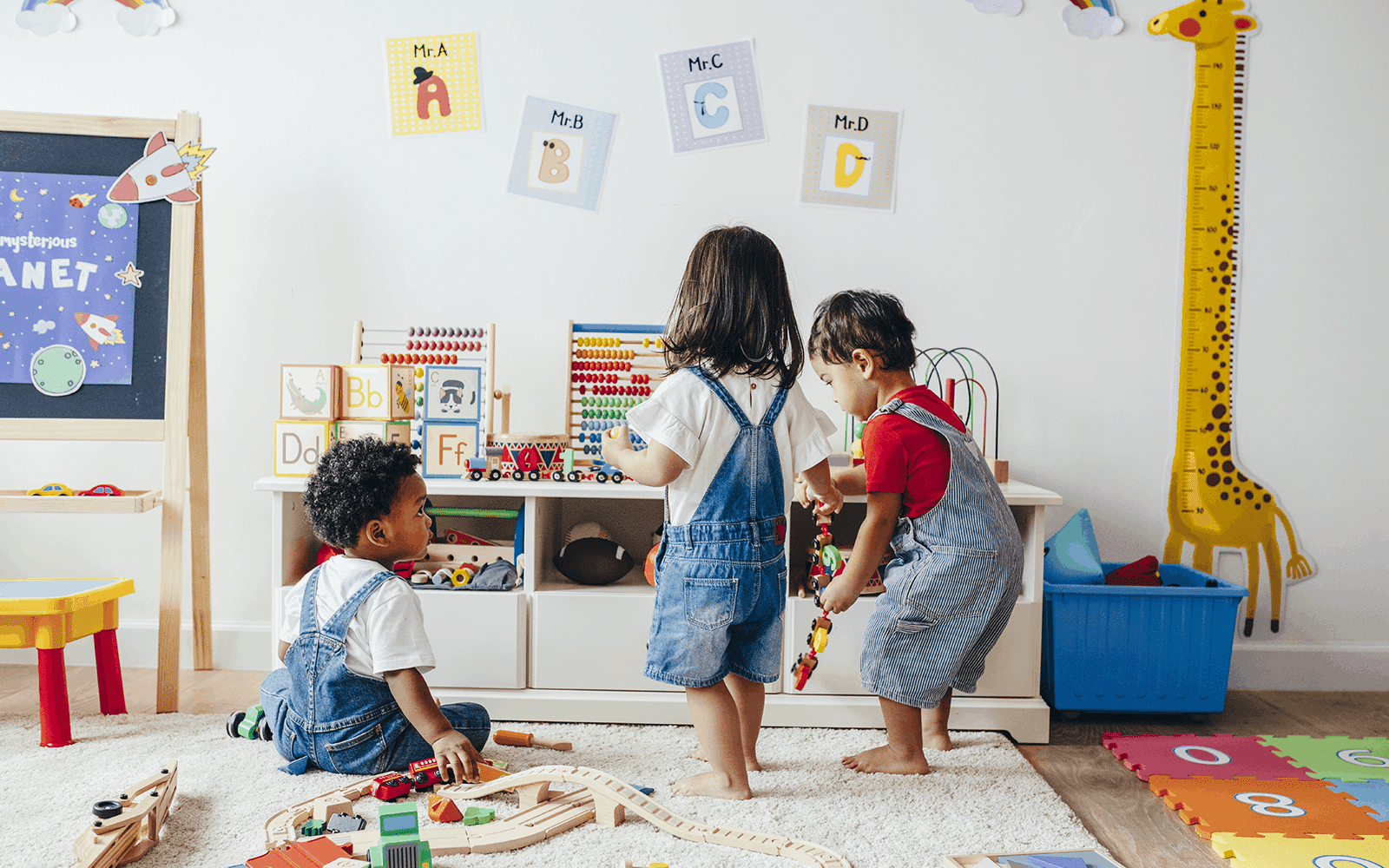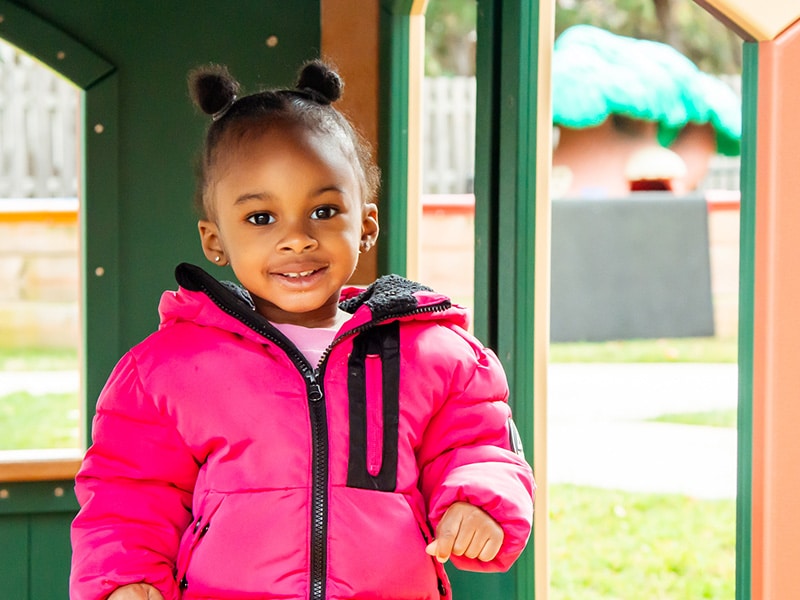Advances in brain research show that children are born learning and that their first three years of life in particular are important indicators for the success they can have later in school and in life. Early experiences that are language-rich and nurturing promote healthy brain development. So finding a quality early learning setting is essential for parents who work and seek child care.

Expert Tips for Preparing Your Child for Daycare
Check out tips from our early learning experts to help prepare infants and toddlers for their first day in a new child care setting.
Stay Connected
Sign up to receive news, helpful tools and learn about how you can help our youngest learners.
Checklist To Prepare for a New Child Care Setting
Once you’ve found a quality setting—from a center-based program to home child care to a relative’s house—here’s some advice from our expert Teresa Bennett a family support specialist at Educare Chicago, a program of Start Early, on how you can prepare your child for their first day of daycare:
- Visit the Child Care Center
To help your child get to know the new environment, visit the child care center with your child before the first day. You and your child can meet the caregiver. Take photos of the route to the center, the center entrance and the room where your child will spend the day. You can assemble the photos as a book, which you can use to talk to your child at home about what their day will be like and where they will go. - Talk to Your Child
To help prepare your infant or toddler to go to out-of-home care, explain using language and concepts they will understand about where they’ll be going and what they’ll be doing. Talk about how they will meet new children and participate in fun activities. Always mention that you’ll be back at the end of the day to take them home. - Build a Relationship With the Caregiver
Your young child may not be able to talk, but they can observe your actions. They’ll form their opinion of the caregiver based on your reactions. Make time each day to talk to the caregiver and begin building a strong relationship. Caregivers at quality early learning programs see parents as partners and will want to develop a strong relationship with you, your child’s first and most important teacher. - Share Information About Your Child
Talk to the caregiver about your child’s cues, likes, dislikes and temperament. How do they like to be fed, soothed and put to sleep? Your tips will help the caregiver know how to best care for your child without having to guess which methods to try. You can also explain what developmental skills you’d like your child to learn. Ask for daily updates about your child’s progress from the caregiver. - Create a Morning Routine
Routines help children feel in control of their surroundings, which eases anxiety. Create a morning routine so your infant or toddler knows what to expect before going to the child care center. Find out if the center provides breakfast so you know whether or not your child needs to eat at home. - Develop a Goodbye Ritual
Create a goodbye ritual so that your infant or toddler starts to feel comfortable with their caregiver when you leave. Your ritual could be a hug, a high five or interacting together with a toy before you leave. Whatever activity you choose, make sure you take time to talk to your child about what’s happening and don’t rush the process. Once your child becomes used to the goodbye ritual, they’ll be better able to regulate their emotions so that they can calm themself more easily when you go. Learn more about separation anxiety. - Bring a Transitional Object
Your child may feel more at ease in a new environment with an object that reminds them of home. This could be a photo of your family that’s laminated or a stuffed animal that your child enjoys. The child can hold the object during the day as a reminder that this new environment is temporary and that you will come back to take them home. - Ask What You Can Do at Home
To extend your child’s learning, ask the caregiver what school readiness skills the children will be working on during the day and what related activities you can do at home. The reverse is also true: share information about what activities you are doing at home that your child is interested in and ask if the teacher can do something similar in class. - Complete Any Medical Requirements
Find out from the school or center what doctor or dentist appointments must be completed or scheduled before the first day. - Bring a Change of Clothes
It’s a good idea to bring a change of clothes for your infant or toddler in case they encounter any water, finger paint, etc. Also, ask the center if you need to bring diapers or formula for your child. - Share Your Contact Information
Let the caregiver know if it’s best to reach you by phone or email and share that contact information.
About the Author

Teresa D. Bennett
Health and Nutrition Coordinator, Educare Chicago
Teresa has worked in the childcare field for 23 years. As a former Head Start child and parent, Teresa has dedicated her life to providing families with the supports needed to achieve their goals.
More Like This
Take Action
Raise your voice and encourage lawmakers to prioritize early learning and care at the local, state and federal level.
Support Our Work
Together, when we start early, we can close the opportunity gap and ensure every child has a chance to reach their full potential.
Resources for Families
Discover educational activities and resources from Start Early experts to provide easy and engaging educational experiences with your child.

